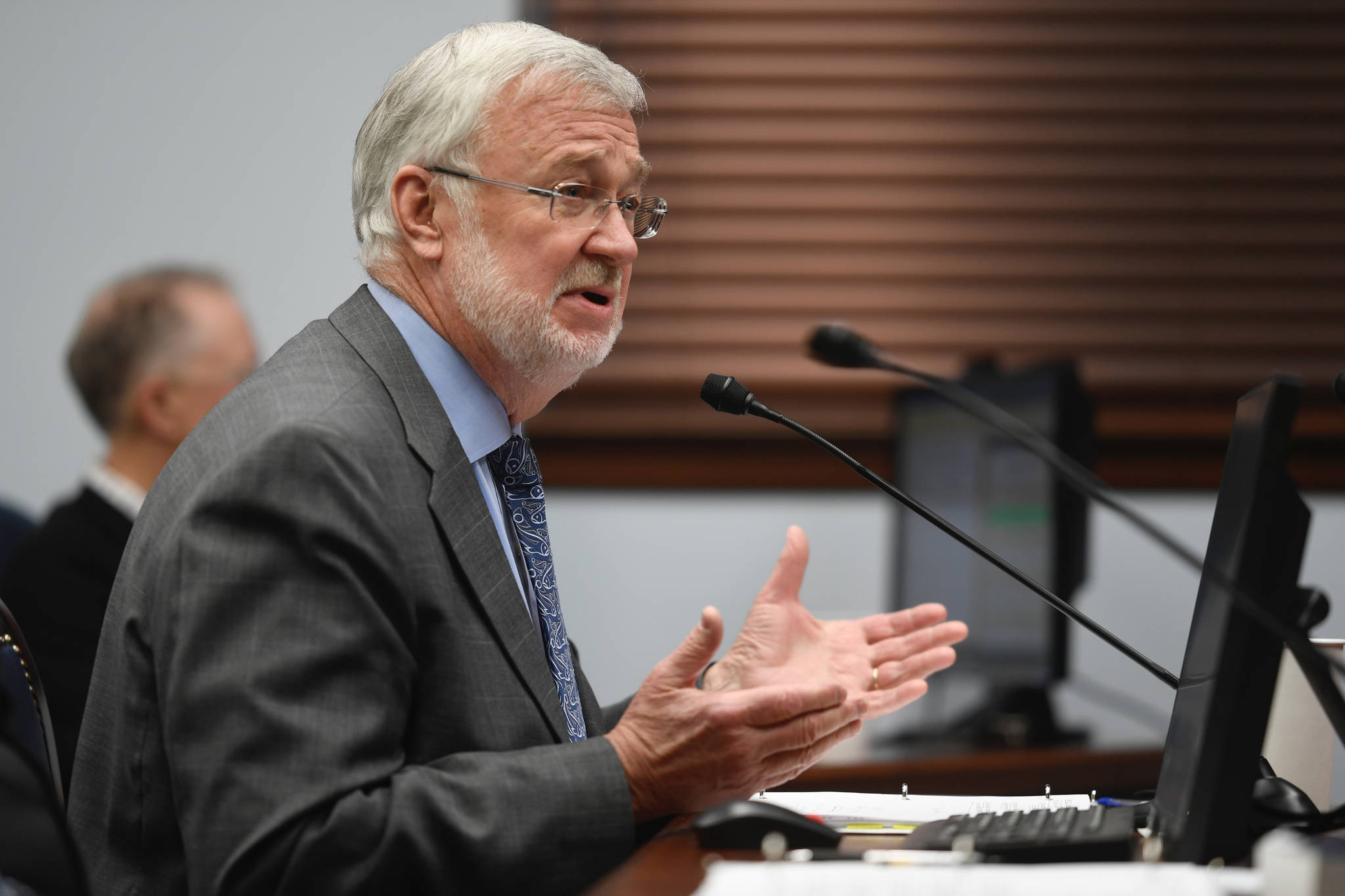Last week, Sen. Mia Costello, R-Anchorage, introduced a constitutional amendment guaranteeing early funding for state K-12 public education. Several state entities and peninsula educators testified during the Senate Education Committee, which is chaired by Sen. Gary Stevens, R-Homer, in support of Senate Joint Resolution 9 Thursday morning.
The resolution would require the governor to submit a separate appropriation bill, alongside the operating budget, in order to fund public education. From there, the Legislature would have to approve the education funding by day 45 of each session.
“Education is one of the state’s core constitutional responsibilities,” Costello said in a press release. “This amendment will provide stability to Alaska’s education community by requiring legislators to act early.”
In the press release, Costello said the amendment would eliminate budget uncertainties for the state and local districts and schools.
Testifying at the committee hearing, Dr. Lisa Skiles Parady said removing this budget uncertainty could alleviate Alaska’s high teacher turnover rate, which she said is around 25 percent across the state, and can be up to 60 or 70 percent in some rural districts.
“We’re hemorrhaging teachers right now, right now, because of that uncertainty,” Parady said. “We’re in a shortage that we’ve never seen before in Alaska, against a backdrop of a national shortage, which is a crisis.”
Parady said reliable, timely and predictable funding is key to keeping teachers from moving on to other districts.
Alaska employs about 1,000 new teachers every year. Local universities graduate around 200-250 new teachers a year. To bring educators to the state, districts are forced to recruit from the Lower 48. With the University of Alaska Anchorage’s recent education school’s accreditation loss, finding teachers within Alaska could become even more of a challenge.
President of Alaska’s National Education Association Tim Parker also testified in support of the resolution. He said attracting teachers to Alaska is critical right now.
“It’s a competitive labor market out there and we’re not in that competitive nature,” Parker said. “The profession has been picked on a bit. The profession has been put down and insulted.”
Parker said enrollment in teacher colleges is dropping nationwide, making the market even more competitive. He also said Alaska has the worst retirement proposal for teachers in the country.
“It’s a pretty mammoth risk factor that our youngest educators are now realizing what they’re looking at and they’re leaving,” Parker said.
The resolution would also be beneficial to local governments, Nils Andreassen, executive director for the Alaska Municipal League, said.
“For municipalities too, this improves their ability to budget accordingly and plan for increases or reductions to local school districts,” Andreassen said.
On the Kenai Peninsula, principal of Paul Banks Elementary, Eric Pederson, called into the committee meeting to testify in support of the resolution. He said early funding for education is the most important topic in this session’s budget discussion.
“I currently have three teachers who do not have contracts for next year and because of not knowing where our funding is, they may leave,” Pederson said. “These are great teachers, and my fear is we are going to lose them.”
The principal of Nikiski Middle-High School, Dan Carstens, also called into the committee to testify in support of the early funding for education. He said many of the teachers at his school are at risk of getting pink-slipped.
“The reality of that is a lot of those teachers do not come back,” Carstens said. “Once they move out of state, it’s that costly to where they don’t come back.”
Carstens said the Kenai Peninsula Borough School District is required to submit a budget in April.
The resolution is still under review by the Senate Education Committee, and if the document is passed by the Legislature, the constitutional amendment will go to the ballot for the voters to decide.


